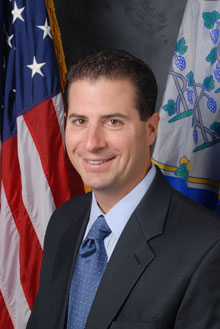Connecticut institution offers online MPA

Waterbury, Conn.-based Post University offers a completely online MPA degree program for public sector and non-for-profit professionals, as well as military personnel. It is suited for students who have busy work and personal lives and need the convenience of an online offering. Here are the views of James Nardozzi, who is director of the Post University Master of Public Administration degree program and dean of Post College. He is also a blogger at blog.post.edu. This is the latest installment in Govpro.com’s series on Master’s of Public Administration (MPA) degree programs and their value to government administrators.
Govpro: Does it make sense to earn an online Master of Public Administration (MPA) degree in 2013?
James Nardozzi: In a word, yes. At a time when budgets are shrinking and government agencies are being asked to do more with less, public sector leaders are going to be responsible for coming up with new ideas for service delivery at lower or no cost. In addition, hundreds of thousands of public administrators are expected to retire in the coming years. Even at a time of cutbacks and smaller staffs, we are going to need qualified people to replace a good amount of them.
Now, more than ever, it’s imperative that today’s public service leaders learn to manage their resources more strategically and bring professional management skills to the table. After all, many government administrators take on the role of Chief Operating Officers within their agencies, requiring knowledge and expertise that extends far beyond traditional public administration roles. They need to understand the concepts of risk management, organizational dynamics, project management, accounting and finance, and building their executive administration skills. That’s why the online MPA degree program at Post University emphasizes the development of both public sector and business management skills and it’s why we require students to complete a capstone project that can address a problem or offer a solution to a real-world issue within the public sector.
Govpro: Can earning an MPA help advance careers in government, or provide job security, or help develop new skills?
JN: Yes to all three questions. Having spent more than 20 years in law enforcement, I can attest to the need for both tactical experience and practical business knowledge for public administration professionals. I called upon both skill sets when I served as deputy police chief of a 400-person police department that was represented by four different labor unions and had a $27 million operating budget. Strong business management skills were critical to my success in that position and to the performance of my department. We absolutely need public sector professionals who possess both business and public administration expertise, but all these skills are not necessarily learned on the job.
Moving up in the ranks means taking the skills learned on the front lines and building on them to make an organization run smoothly, while also communicating effectively with the community and municipality, county, state, and the federal government. That’s why in many cases advanced degrees have gone from a “good to have” to a “need to have” for public sector leaders.
With this in mind, Post’s MPA program was designed to be a place where private and public sectors’ best practices merge. Courses are taught by faculty who have not only academic credentials, but decades of relevant professional experience, and the emphasis is on helping students gain practical, actionable knowledge and skills that can be applied in real-time to address challenges or seize opportunities within their organizations.
Govpro: Are there benefits to earning an online MPA versus earning an MPA in a traditional bricks-and-mortar MPA program?
JN: The answer to this question largely depends on the quality of the individual program. When done well, both learning environments can provide students with access to high quality curriculum, instruction and collegial interaction. However, there are a few significant advantages to an online program for working professionals. A quality online program allows people to earn their degree without interrupting their careers or juggling their schedules to attend class at set times. Post University’s Online MPA program is offered in an online, asynchronous format, meaning students can log on anytime, anywhere as long as they have access to the Internet. Also, the online discussion board affords students the opportunity to really get to know their professors and fellow classmates. At Post, we like to say, “there is no hiding in the back row in an online class.” Everyone is required to actively participate in the online discussions and apply what they’re learning to real organizational challenges and opportunities.
The online format also opens the door to being in class with students from around the country and around the world, each of whom brings different experiences and perspectives to the online discussions. In particular, Post’s program includes many courses with a mix of students and professors from private and public sectors. We have police officers, business owners, managers and executives, human resource professionals, and government administrators learning together in many of our courses. This creates a truly robust learning environment that allows students to learn from each other’s experiences and deepen their understanding of business and public administration.
The best advice I can offer is to choose a program that’s going to provide you with the breadth and depth of knowledge, skills and experience you’ll need to respond not only to today’s challenges, but to the ever-changing needs of the public sector. Look for an MPA program that is taught by professors who have strong academic credentials and bring decades of relevant, real-world experience to the classroom. Seek out a program that is practice-based and includes plenty of opportunities to learn from, and interact with, other working professionals.
Govpro.com has profiled several MPA programs, including offerings at Barry University and Kaplan University.




















